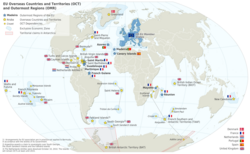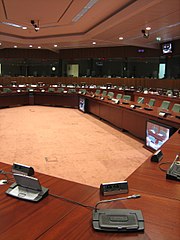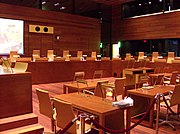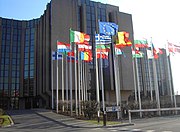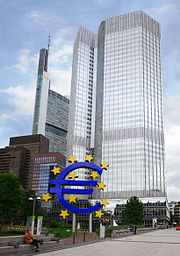European Union Contents History | Free movement | Main institutions | Politics | Member States | Motto | Brexit | Related pages | References | References | Other websites | Navigation menu50°51′N 4°21′E / 50.850°N 4.350°E / 50.850; 4.350europa.euCapital Cities around the World: An Encyclopedia of Geography, History, and Culture: An Encyclopedia of Geography, History, and Culture"Discrimination in the EU in 2012"the original"Eurostat – Population on 1 January 2017""IMF World Economic Outlook Database, October 2016""IMF World Economic Outlook Database, April 2016""Gini coefficient of equivalised disposable income (source: SILC)""Institutions: The European Commission""Parliament's powers and procedures""Institutions of the EU: The European Commission""Croatia to become EU member 1 July 2013""Turkey 'backsliding' in bid to join EU, says Commission""The EU motto""Brexit: All you need to know about the UK leaving the EU""'No turning back' on Brexit as Article 50 triggered"European Union online portalLithuania's EU Council Presidency'Your Europe' information websiteEurope of culturesee
European Union1952 establishments in Europe
abbreviationconfederationcountriesEuropecitizensmoneyeuroTreaty of Lisbontreatystatehuman rightsdemocracypassportlaw enforcementWorld War IIcountrieseconomies(West) GermanyFranceItalyBelgiumNetherlandsLuxembourgEuropean Coal and Steel Community19521957Rometrade1993lawsSchengen Agreementpassportidentity cardeuro2004citizenvisaFrenchGreeceauthorityLegislativelower houseLegislativeupper houseExecutiveJudiciaryauditorcentral bankGermanyFinlandLuxembourgMaltaPrime MinistersPresidentsEuropean CouncilgovernmentEuropean ParliamentCouncil of the European UnionPresidentEuropean Parliamentcabinetmember stateParliamentFrench PresidentCharles de GaulleSerbiaMontenegroRepublic of MacedoniaTurkeyIcelandAlbaniaBosnia and HerzegovinaKosovoPresident ErdogancoupreferendumBrexit
European Union
Jump to navigation
Jump to search
European Union
| |||||||||||||||||||||||||||||||||||||||||||||||||
|---|---|---|---|---|---|---|---|---|---|---|---|---|---|---|---|---|---|---|---|---|---|---|---|---|---|---|---|---|---|---|---|---|---|---|---|---|---|---|---|---|---|---|---|---|---|---|---|---|---|
 Flag | |||||||||||||||||||||||||||||||||||||||||||||||||
Motto: ’In Varietate Concordia’ (Latin) ‘United in Diversity’ | |||||||||||||||||||||||||||||||||||||||||||||||||
Anthem: "Ode to Joy" (instrumental) | |||||||||||||||||||||||||||||||||||||||||||||||||
 Location of the European Union | |||||||||||||||||||||||||||||||||||||||||||||||||
Location of the European Union, its outermost regions, and the overseas countries and territories | |||||||||||||||||||||||||||||||||||||||||||||||||
| Capital | Brussels (de facto)[1] 50°51′N 4°21′E / 50.850°N 4.350°E / 50.850; 4.350 | ||||||||||||||||||||||||||||||||||||||||||||||||
| Largest cities | Paris and London[a] | ||||||||||||||||||||||||||||||||||||||||||||||||
| Official languages | 25 languages
| ||||||||||||||||||||||||||||||||||||||||||||||||
| Official scripts |
| ||||||||||||||||||||||||||||||||||||||||||||||||
| Religion (2012) |
| ||||||||||||||||||||||||||||||||||||||||||||||||
| Demonym(s) | European[4] | ||||||||||||||||||||||||||||||||||||||||||||||||
| Type | Political and economic union | ||||||||||||||||||||||||||||||||||||||||||||||||
| Member states | 28 states
| ||||||||||||||||||||||||||||||||||||||||||||||||
| Leaders | |||||||||||||||||||||||||||||||||||||||||||||||||
• President of the European Parliament | Antonio Tajani | ||||||||||||||||||||||||||||||||||||||||||||||||
• President of the European Council | Donald Tusk | ||||||||||||||||||||||||||||||||||||||||||||||||
• President of the European Commission | Jean-Claude Juncker | ||||||||||||||||||||||||||||||||||||||||||||||||
| Legislature |
| ||||||||||||||||||||||||||||||||||||||||||||||||
Formation[5] | |||||||||||||||||||||||||||||||||||||||||||||||||
• Treaty of Rome | 1 January 1958 | ||||||||||||||||||||||||||||||||||||||||||||||||
• Treaty of Maastricht | 1 November 1993 | ||||||||||||||||||||||||||||||||||||||||||||||||
• Treaty of Lisbon | 1 December 2009 | ||||||||||||||||||||||||||||||||||||||||||||||||
• Last polity admitted | 1 July 2013 | ||||||||||||||||||||||||||||||||||||||||||||||||
| Area | |||||||||||||||||||||||||||||||||||||||||||||||||
• Total | 4,475,757 km2 (1,728,099 sq mi) | ||||||||||||||||||||||||||||||||||||||||||||||||
• Water (%) | 3.08 | ||||||||||||||||||||||||||||||||||||||||||||||||
| Population | |||||||||||||||||||||||||||||||||||||||||||||||||
• 2017 estimate | |||||||||||||||||||||||||||||||||||||||||||||||||
• Density | 116.8/km2 (302.5/sq mi) | ||||||||||||||||||||||||||||||||||||||||||||||||
GDP (PPP) | 2017 estimate | ||||||||||||||||||||||||||||||||||||||||||||||||
• Total | $20.9 trillion[7] (2nd) | ||||||||||||||||||||||||||||||||||||||||||||||||
• Per capita | $40,891[7] | ||||||||||||||||||||||||||||||||||||||||||||||||
GDP (nominal) | 2017 estimate | ||||||||||||||||||||||||||||||||||||||||||||||||
• Total | $17.1 trillion[7] (2nd) | ||||||||||||||||||||||||||||||||||||||||||||||||
• Per capita | $33,551[8] | ||||||||||||||||||||||||||||||||||||||||||||||||
Gini (2015) | medium | ||||||||||||||||||||||||||||||||||||||||||||||||
HDI (2017) | very high | ||||||||||||||||||||||||||||||||||||||||||||||||
| Currency | Euro (EUR; €; Eurozone) United States dollar (USD; $) 10 others
| ||||||||||||||||||||||||||||||||||||||||||||||||
| Time zone | UTC to UTC+2 (
| ||||||||||||||||||||||||||||||||||||||||||||||||
• Summer (DST) | UTC+1 to UTC+3 (DST) | ||||||||||||||||||||||||||||||||||||||||||||||||
Note: with the exception of Madeira, the outermost regions observe different time zones not shown.[b] | |||||||||||||||||||||||||||||||||||||||||||||||||
| Date format | dd/mm/yyyy See also: Date and time notation in Europe | ||||||||||||||||||||||||||||||||||||||||||||||||
| Internet TLD | .eu | ||||||||||||||||||||||||||||||||||||||||||||||||
Website europa.eu | |||||||||||||||||||||||||||||||||||||||||||||||||
The European Union (abbreviation: EU) is a de facto confederation[1] of 28 member countries in Europe, started in 1957 as the European Economic Community (EEC). It has created a common economic area with Europe-wide laws allowing the citizens of EU countries to move and trade in other EU countries almost the same as they do in their own. Nineteen of these countries also share the same type of money: the euro.
The Treaty of Lisbon is the most recent treaty that says how the Union is run. Every member state signed to say that they each agreed with what it says. Most importantly, it says which jobs (’powers’) the Union should do for the members and which jobs they should do themselves. The members decide how the Union should act by voting for or against proposals.
The objective of the EU is to bring its member states closer together with respect of human rights and democracy. It does this with a common style of passport, common rules about fair trading with each other, common agreements about law enforcement, and other agreements. Most members share a common currency (the euro) and most allow people to travel from one country to another without having to show a passport.
Contents
1 History
2 Free movement
3 Main institutions
3.1 Council of the European Union
3.2 European Commission
3.3 European Parliament
4 Politics
5 Member States
6 Motto
7 Brexit
8 Related pages
9 References
10 References
11 Other websites
History |
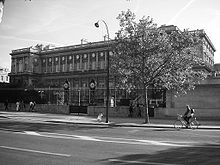
Quai d'Orsay (Paris). Robert Schuman gave the speech starting the plan for a European Coal and Steel Community in 1950
After World War II, the countries in Europe wanted to live peacefully together and help one another's economies. Instead of fighting each other for coal and steel, the first member countries (West) Germany, France, Italy, Belgium, Netherlands, and Luxembourg created one European Coal and Steel Community in 1952.
In 1957 in the Italian city of Rome, the member countries signed another treaty and made the European Economic Community. Now it was a community for coal, steel and for trade. Later it changed the name to the European Community.
In 1993, with the Treaty of Maastricht it changed its name to the European Union. Now the member countries work together not only in politics and economy (coal, steel and trade), but also in money, justice (laws), and foreign affairs. With the Schengen Agreement, 22 member countries of the EU opened their borders to each other, so people can now travel from one country to the other without a passport or identity card. Now already 16 member countries have replaced their national currencies with the euro. 10 new countries became members of the EU in 2004, 2 more became members in 2007, and 1 more in 2013. Today there are 28 member countries altogether.
Free movement |
A person who is a citizen of a European Union country can live and work in any of the other 27 member countries without needing a work permit or visa. For example, a French person can move to Greece to work there, or just to live there, and he or she does not need permission from an authority in Greece.
In the same way, products made in one member country can be sold in any other member country without any special permissions or extra taxes. For this reason, the members agree rules on product safety - they want to know that a product made in another country will be as safe as it would be if it had been made in their own.
Main institutions |
Institutions of the European Union [11][12][13]
European Parliament - Legislative (lower house) - | European Council - Sets impetus and direction - | Council of the European Union - Legislative (upper house) - | European Commission - Executive - | |||||
|
|
|
| |||||
Court of Justice of the European Union - Judiciary - | European Court of Auditors - Financial auditor - | European Central Bank - Monetary executive (central bank) - | ||||
|
|
|
Council of the European Union |
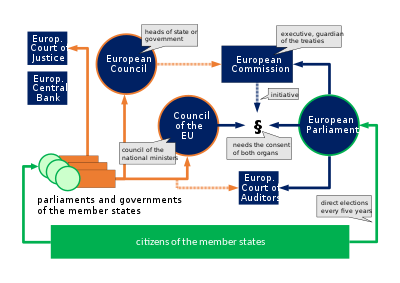
Political system of the European Union. The union has seven organs (in blue).
The Council of the European Union is the main decision-making group. The cabinet ministers of the member countries meet (Ministers for Foreign affairs, for Agriculture, for Justice, etc...) and discuss issues that are important to them.
Before the Treaty of Lisbon (written in 2007, implemented in 2008) each member state takes a turn at being President of the Council for six months. For example, from January 2007 until July 2007, Germany held the presidency. The six months before that, Finland held the presidency. Now the President of the European Union chairs the council summits. The President of the Council is the organiser and manager and is voted into office for a duration of two and a half years. He or she does not have the power to make decisions about the European Union like the President of the United States does for that country.
Member countries with a large population (Germany, France, United Kingdom, etc.) have more votes than countries with small populations (Luxembourg, Malta, etc.) but a decision cannot be made if enough countries vote against the decision.
Twice a year, the heads of government (Prime Ministers) and/or the heads of state (Presidents) meet to talk about the main issues and make decisions on different issues. This meeting is different and not as formal. It is known as a European Council.
Note: This is not the same thing as the Council of Europe, which is not part of the European Union.
European Commission |
The European Commission runs the day-to-day running of the EU and writes laws, like a government. Laws written by the Commission are discussed and changed by the European Parliament and the Council of the European Union.
The Commission has one President and 27 Commissioners, selected by the European Council. The Commission President is appointed by the European Council with the approval of the European Parliament.[14]
The Commission operates like a cabinet government. There is one Commissioner per member state, though Commissioners are bound to represent the interests of the EU as a whole rather than their home state.
European Parliament |

The Parliament is the only directly elected body
- See also: European Union budget
The Parliament has a total of 785 members (called Members of the European Parliament, or MEP). They are elected in their countries every five years by the citizens of the European Union member countries. The Parliament can approve, reject or change proposed laws. It can also sack the European Commission. In that case, the entire commission would have to give up their jobs.
Politics |
There are many discussions in the EU about how it should develop and change in the future.
The main reasons why European countries came together are political and economic:
- The need to prevent another European war after World War I and World War II.
- The need to respect human rights, rule of law and democracy more affirmed by Council of Europe.
- The need to have a common economic area.
Member States |
In 1951, six countries made the European Coal and Steel Community, a basic version of what the EU is now. These six then went further and in 1957 they made the European Economic Community and the European Coal and Steel Community. The UK and others decided not to join, and then when the UK changed its mind it was stopped from joining by French President Charles de Gaulle. When he was no longer President, the UK and others started to join. Today there are 28 members but the idea that more should join is not seen as a good one by everyone.

The member states of the European Union highlighted in light brown.
|
|
↑ East Germany and West Germany became one country in 1990. Since then the whole of Germany is an EU member country.
↑ Greenland joined as part of Denmark, but was given some power to rule itself afterwards. With this power, it decided to leave the EEC.
↑ Although Northern Cyprus is officially part of Cyprus (and the EU), it is not actually controlled by the Government of Cyprus and its passports are not accepted by EU members.
Serbia, Montenegro, the Republic of Macedonia, Turkey and Iceland are "candidate countries"; they are being considered for membership. Albania, Bosnia and Herzegovina and Kosovo are expected to follow.
However, since there have been many political problems happening in Turkey recently, especially with President Erdogan's arresting of tens of thousands of political rivals since the failed coup attempt on July 15, 2016, it is unlikely that it would be allowed to part of the EU anytime soon because EU members believe that the current Turkish government is not respecting human rights, rule of law, or democracy.[16]
Motto |
United in diversity (or together with many types of people in Simple English), is the motto of the European Union.
The motto in other languages:[17]
|
|
|
Brexit |
On June 23, 2016, the UK held a referendum on whether it should stay in the EU or leave it. The majority [52% to 48%] favoured leaving.[18] Britain leaving the EU is commonly known as Brexit.
The government of the UK triggered "Article 50" of the Treaty of European Union (the Treaty of Lisbon) on 29 March 2017.[19] This began negotiations with fellow members of the EU on the terms of exit. The timetable for these negotiations is two years, which means that the UK will remain a member of the EU until at least March 2019.
Related pages |
- Citizenship of the European Union
- Multilingualism
- Brexit
References |
↑ London and Paris are the largest cities in the European Union by urban population.[2]
↑ Martinique, Guadeloupe (UTC−4); French Guiana (UTC−3); Azores (UTC−1 / UTC); Mayotte (UTC+3); and La Réunion (UTC+4); which, other than the Azores, do not observe DST.
References |
↑ 1.01.1 Cybriwsky, Roman Adrian (2013). Capital Cities around the World: An Encyclopedia of Geography, History, and Culture: An Encyclopedia of Geography, History, and Culture. ABC-CLIO. ISBN 978-1-61069-248-9.Brussels, the capital of Belgium, is considered to be the de facto capital of the EU
.mw-parser-output cite.citationfont-style:inherit.mw-parser-output .citation qquotes:"""""""'""'".mw-parser-output .citation .cs1-lock-free abackground:url("//upload.wikimedia.org/wikipedia/commons/thumb/6/65/Lock-green.svg/9px-Lock-green.svg.png")no-repeat;background-position:right .1em center.mw-parser-output .citation .cs1-lock-limited a,.mw-parser-output .citation .cs1-lock-registration abackground:url("//upload.wikimedia.org/wikipedia/commons/thumb/d/d6/Lock-gray-alt-2.svg/9px-Lock-gray-alt-2.svg.png")no-repeat;background-position:right .1em center.mw-parser-output .citation .cs1-lock-subscription abackground:url("//upload.wikimedia.org/wikipedia/commons/thumb/a/aa/Lock-red-alt-2.svg/9px-Lock-red-alt-2.svg.png")no-repeat;background-position:right .1em center.mw-parser-output .cs1-subscription,.mw-parser-output .cs1-registrationcolor:#555.mw-parser-output .cs1-subscription span,.mw-parser-output .cs1-registration spanborder-bottom:1px dotted;cursor:help.mw-parser-output .cs1-ws-icon abackground:url("//upload.wikimedia.org/wikipedia/commons/thumb/4/4c/Wikisource-logo.svg/12px-Wikisource-logo.svg.png")no-repeat;background-position:right .1em center.mw-parser-output code.cs1-codecolor:inherit;background:inherit;border:inherit;padding:inherit.mw-parser-output .cs1-hidden-errordisplay:none;font-size:100%.mw-parser-output .cs1-visible-errorfont-size:100%.mw-parser-output .cs1-maintdisplay:none;color:#33aa33;margin-left:0.3em.mw-parser-output .cs1-subscription,.mw-parser-output .cs1-registration,.mw-parser-output .cs1-formatfont-size:95%.mw-parser-output .cs1-kern-left,.mw-parser-output .cs1-kern-wl-leftpadding-left:0.2em.mw-parser-output .cs1-kern-right,.mw-parser-output .cs1-kern-wl-rightpadding-right:0.2em
↑ UN DESA 2015 urban population: London: 10,313,307; Paris: 10,843,285.
↑ "Discrimination in the EU in 2012" (PDF), Special Eurobarometer, 393, European Union: European Commission, p. 233, 2012, archived from the original (PDF) on 2 December 2012, retrieved 14 August 2013 Unknown parameter|url-status=ignored (help) The question asked was "Do you consider yourself to be...?" With a card showing: Catholic, Orthodox, Protestant, Other Christian, Jewish, Muslim, Sikh, Buddhist, Hindu, Atheist, and Non-believer/Agnostic. Space was given for Other (SPONTANEOUS) and DK. Sikh, Buddhist, Hindu did not reach the 1% threshold.
↑ McKean, Erin (2005). The New Oxford American Dictionary. Oxford University Press, USA. p. 2005. ISBN 978-0-19-517077-1.
↑ Current Article 1 of the Treaty on European Union reads:"The Union shall be founded on the present Treaty and on the Treaty on the Functioning of the European Union. Those two Treaties shall have the same legal value. The Union shall replace and succeed the European Community".
↑ "Eurostat – Population on 1 January 2017". European Commission. Retrieved 14 July 2017.
↑ 7.07.17.2 "IMF World Economic Outlook Database, October 2016". International Monetary Fund. Retrieved 22 December 2016.
↑ "IMF World Economic Outlook Database, April 2016". International Monetary Fund. Retrieved 17 April 2016.
↑ "Gini coefficient of equivalised disposable income (source: SILC)". Eurostat Data Explorer. Retrieved 12 February 2017.
↑ Calculated using UNDP data for the member states with weighted population.
↑ Consolidated version of the Treaty on European Union/Title III: Provisions on the Institutions
↑ "Institutions: The European Commission". Retrieved 2007-06-25.
↑ "Parliament's powers and procedures". European Parliament. Retrieved 2007-06-12.
↑ "Institutions of the EU: The European Commission". Retrieved 2007-06-18.
↑ "Croatia to become EU member 1 July 2013". Croatian Times. May 23, 2011. Retrieved November 17, 2011.
↑ "Turkey 'backsliding' in bid to join EU, says Commission".
↑ "The EU motto". Europa. European Union. Retrieved 2016-05-30.
↑ "Brexit: All you need to know about the UK leaving the EU".
↑ Laura Kuenssberg. "'No turning back' on Brexit as Article 50 triggered". BBC News. Retrieved 29 March 2017.
Other websites |
| Wikimedia Commons has media related to European Union. |
- European Union online portal
- Lithuania's EU Council Presidency
- 'Your Europe' information website
Europe of cultures 50 years of artistic creation and cultural life from the 27 countries of the European Union
Categories:
- European Union
- 1952 establishments in Europe
(RLQ=window.RLQ||[]).push(function()mw.config.set("wgPageParseReport":"limitreport":"cputime":"1.220","walltime":"1.535","ppvisitednodes":"value":9796,"limit":1000000,"ppgeneratednodes":"value":0,"limit":1500000,"postexpandincludesize":"value":347800,"limit":2097152,"templateargumentsize":"value":110856,"limit":2097152,"expansiondepth":"value":16,"limit":40,"expensivefunctioncount":"value":31,"limit":500,"unstrip-depth":"value":1,"limit":20,"unstrip-size":"value":48545,"limit":5000000,"entityaccesscount":"value":0,"limit":400,"timingprofile":["100.00% 1181.405 1 -total"," 77.91% 920.488 4 Template:Infobox"," 63.33% 748.217 1 Template:Infobox_geopolitical_organisation"," 32.79% 387.395 5 Template:Collapsible_list"," 17.08% 201.813 25 Template:Lang"," 16.14% 190.691 2 Template:Reflist"," 12.64% 149.285 28 Template:Flaglist"," 6.98% 82.505 2 Template:Cite_book"," 5.16% 61.013 11 Template:Cite_web"," 4.33% 51.151 28 Template:Flaglist/core"],"scribunto":"limitreport-timeusage":"value":"0.502","limit":"10.000","limitreport-memusage":"value":18877295,"limit":52428800,"cachereport":"origin":"mw1327","timestamp":"20190705213522","ttl":2592000,"transientcontent":false););"@context":"https://schema.org","@type":"Article","name":"European Union","url":"https://simple.wikipedia.org/wiki/European_Union","sameAs":"http://www.wikidata.org/entity/Q458","mainEntity":"http://www.wikidata.org/entity/Q458","author":"@type":"Organization","name":"Contributors to Wikimedia projects","publisher":"@type":"Organization","name":"Wikimedia Foundation, Inc.","logo":"@type":"ImageObject","url":"https://www.wikimedia.org/static/images/wmf-hor-googpub.png","datePublished":"2004-01-20T07:35:58Z","dateModified":"2019-06-24T11:03:58Z","image":"https://upload.wikimedia.org/wikipedia/commons/b/b7/Flag_of_Europe.svg","headline":"economic and political union of states mostly located in Europe"(RLQ=window.RLQ||[]).push(function()mw.config.set("wgBackendResponseTime":167,"wgHostname":"mw1275"););
